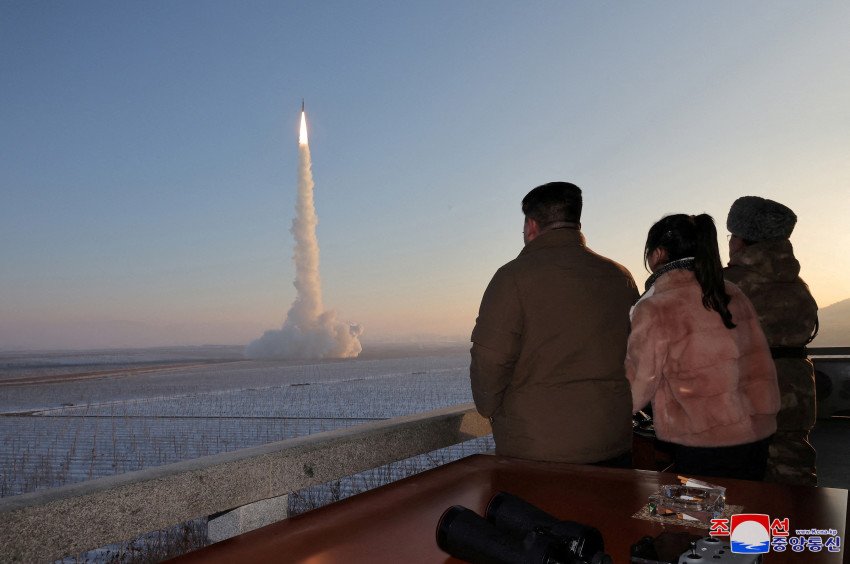S Korea, U.S., Japan launch system to track N Korean missiles in real-time
SEOUL – South Korea, the United States and Japan said on Tuesday they have activated a new system to detect and assess North Korea’s missile launches in real-time.
The announcement comes after North Korea said it had tested the isolated state’s newest intercontinental ballistic missile (ICBM) on Monday to gauge the war readiness of its nuclear force against mounting U.S. hostility.
Here is what we know about the new missile warning data sharing system:
WHAT INFORMATION IS BEING SHARED?
Under the new mechanism, the three countries will share information on the launch site, flight trajectory and hitting point of North Korean missiles around the clock, South Korean Defense Minister Shin Won-sik said.
The United States had until now shared such information separately with South Korea and Japan.
“We will have warning data on North Korean missiles much faster, and be able to secure enough time to respond effectively,” Shin said in an interview with broadcaster MBN on Monday.
WHY IS IT BEING SHARED?
Washington and its allies call the new mechanism a milestone that will advance their trilateral security cooperation and improve the ability to ensure the safety of their people.
The information sharing is expected to help them to respond more quickly to North Korea’s growing nuclear and missile threats.
Monday’s missile launch marked the North’s fifth ICBM test this year in what Pyongyang described as a demonstration of the nuclear-armed state’s “will for toughest counteraction and its overwhelming strength.”
“This is a significant expression of just how far trilateral cooperation has come, in no small part due to the growing threat from North Korea,” said Ankit Panda, a senior fellow at the U.S.-based Carnegie Endowment for International Peace.
“In practical terms, this will enhance the fidelity with which both Japan and South Korea can assess missile events originating in North Korea,” he said.
WHY WAS SUCH DATA NOT SHARED BEFORE?
Relations between the two Asian U.S. allies had been strained over historical issues and other disputes.
But South Korean President Yoon Suk Yeol has made it a priority to mend ties since taking office in May 2022 as North Korea ramps up development of its weapons programs and openly threatens the South.
“There have always been people opposed to information sharing between South Korea and Japan, in both countries. But with the threats from North Korea we are seeing now, when Japanese people are taking shelter (due to the missiles), who would say no?” said Shin Jong-woo, a senior researcher at the Korea Defense & Security Forum.
Japan’s Chief Cabinet Secretary Yoshimasa Hayashi said on Tuesday real-time missile information sharing started a new chapter for defense cooperation between Japan, South Korea and the United States, which was “essential” for regional security.
Panda of the Carnegie Endowment for International Peace said the new mechanism was a safeguard against politics blowing cooperation off course.
“The institutionalization of this mechanism will also make it more robust against possible domestic political changes in South Korea or Japan that could pose headwinds for trilateral cooperation in the future,” said Panda.
HOW HAS NORTH KOREA RESPONDED?
North Korea has slammed the new information sharing system as part U.S. efforts to incite confrontation and boost its military edge in the region.
“Such a scheme for a tripartite data-sharing mechanism led by the U.S. is evidently a dangerous military action to drive the regional situation to a more serious phase of confrontation,” the North’s state media said last week.
© Thomson Reuters 2023.

